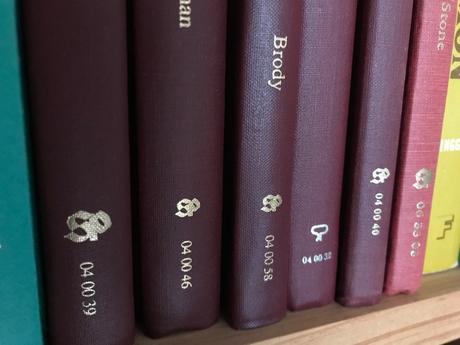So here’s the thing about innocuous names—they don’t work well with the internet. Search engines throw a rod trying to find something so insipid that it might mean anything. I’m driven to this topic by the fact that “Scholars Press” or something like it, is used by a number of organizations, some apparently predatory. If you’re a scholar of religion you know to what I’m referring when I say “Scholars Press.” You know the neat, trim little monographs that you consumed like popcorn while writing your dissertation. Try to find a history of the press online. I’ll wait.
So finally I heaved myself out of my chair and got an actual book (imagine that!) off the shelf. It is a volume I purchased when the American Academy of Religion and Society of Biblical Literature met in Orlando. A conference to remember. So, along with Woody and Buzz Lightyear, we were gathered to learn about religion and I finally shelled out for Ernest W. Saunders’ Searching the Scriptures: A History of the Society of Biblical Literature 1880–1980. There I found what Google couldn’t: Scholars Press dates from 1974, a joint venture of the two societies. Originally it published books from the University of Montana at Missoula, and later moved to Chico, California. Finally it settled in Atlanta and eventually split into two as AAR and SBL took on the publishing of their own books. I saved myself several minutes of probably fruitless scrolling. It seems nobody else is really interested in this. I am an historian of religion, but an historian none the less. I wanted to know the sequence of events.

I am curious when the two decided to break up this venture. There was a divorce, or temporary separation, between the societies some years back—I can’t recall when it was—that seems a logical time for them to think about taking on their individual publishing programs, but then again, they may have started before then. In other words, I don’t have the date when Scholars Press dissolved. Religious studies, I realize, is a small discipline. For many colleagues it’s their entire world. Some of them write histories about various aspects of it—I saw a book that I want to read about the murder of a religion professor Ioan Culianu back in 1991—but compared to history or English, we’re minuscule. And we don’t seem very curious about ourselves. We’re an odd lot, that’s for sure. And we don’t always pick the best names.
